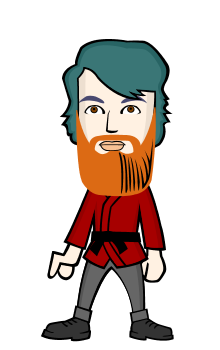Theodor W. Adorno (alias: Theodor Adorno-Wiesengrund) was born as Theodor Ludwig Wiesengrund in Frankfurt am Main on September 11, 1903, the only child of Oscar Alexander Wiesengrund (1870–1946) and Maria Calvelli-Adorno della Piana (1865–1952). His mother, a devout Catholic from Corsica, was once a professional singer, while his father, an assimilated Jew who had converted to Protestantism, ran a successful wine-export business. Proud of her origins, Maria wanted her son's paternal surname to be supplemented by the addition of her own name: Adorno. Thus his earliest publications carried the name Theodor Wiesengrund-Adorno; upon his application for US citizenship, his name was modified to Theodor W. Adorno. His childhood was marked by the musical life provided by his mother and aunt: Maria was a singer who could boast of having performed in Vienna at the Imperial Court, while her sister, Agathe, who lived with them, had made a name for herself as both a singer and pianist. He was not only a precocious child but, as he recalled later in life, a child prodigy who could play pieces by Beethoven on the piano by the time he was twelve.[6] At the age of six, he attended the Deutschherren middle school before transferring to the Kaiser-Wilhelm Gymnasium, where he studied from 1913 to 1921. Prior to his graduation at the top of his class, Adorno was already swept up by the revolutionary mood of the time, as is evidenced by his reading of Georg Lukács's The Theory of the Novel that year, as well as by his fascination with Ernst Bloch's The Spirit of Utopia, of which he would later write:
Bloch's was a philosophy that could hold its head high before the most advanced literature; a philosophy that was not calibrated to the abominable resignation of methodology ... I took this motif so much as my own that I do not believe I have ever written anything without reference to it, either implicit or explicit.[7]
Yet Adorno's intellectual nonconformism was no less shaped by the repugnance he felt towards the nationalism which swept through the Reich during theFirst World War. Along with future collaborators like Walter Benjamin, Max Horkheimer, Ernst Bloch, Adorno was profoundly disillusioned by the ease with which Germany's intellectual and spiritual leaders—among them Max Weber, Max Scheler, Georg Simmel, as well as his friend Siegfried Kracauer—came out in support of the war. The younger generation's distrust for traditional knowledge arose from the way in which this tradition had discredited itself.[8]Over time, Oscar Wiesengrund's firm established close professional and personal ties with the factory of Karplus & Herzberger in Berlin. The eldest daughter of the Karplus family, Margarete, or Gretel, moved in the intellectual circles of Berlin, where she was acquainted with Walter Benjamin, Bertolt Brecht and Ernst Bloch, each of whom Adorno would become familiar with during the mid-20s; after fourteen years, Gretel and Theodor were married in 1937. At the end of his schooldays, Adorno not only benefited from the rich concert offerings of Frankfurt—where one could hear performances of works by Schoenberg, Schreker, Stravinsky, Bartók, Busoni, Delius and Hindemith—but also began studying music composition at the Hoch Conservatory while taking private lessons with well-respected composers Bernhard Sekles and Eduard Jung. At around the same time, he befriended Siegfried Kracauer, theFrankfurter Zeitung's literary editor, of whom he would later write:
For years Kracauer read [Kant's] Critique of Pure Reason with me regularly on Saturday afternoons. I am not exaggerating in the slightest when I say that I owe more to this reading than to my academic teachers ... Under his guidance I experienced the work from the beginning not as mere epistemology, not as an analysis of the conditions of scientifically valid judgments, but as a kind of coded text from which the historical situation of spirit could be read, with the vague expectation that in doing so one could acquire something of truth itself.[9]
| Notable teachers |
|---|
|
| Notable students |
|
Leaving gymnasium to study philosophy, psychology and sociology at Johann Wolfgang Goethe University in Frankfurt, Adorno continued his readings with Kracauer, turning now to Hegel and Kierkegaard, and began publishing concert reviews and pieces of music for distinguished journals like the Zeitschrift für Musik, the Neue Blätter für Kunst und Literatur and later for the Musikblätter des Anbruch. In these articles, Adorno championed avant-garde music at the same time as he critiqued the failings of musical modernity, as in the case of Stravinsky's The Soldier's Tale, which he called in 1923 a "dismal Bohemian prank."[10] In these early writings, he was unequivocal in his condemnation of performances which either sought or pretended to achieve a transcendence which Adorno, in line with many intellectuals of the time, regarded as impossible: "No cathedral," he wrote, "can be built if no community desires one."[11] In the summer of 1924, Adorno received his doctorate with a study of Edmund Husserl under the direction of the unorthodox neo-Kantian Hans Cornelius. Before his graduation, Adorno had already met with his most important intellectual collaborators, Max Horkheimer and Walter Benjamin. Through Cornelius's seminars, Adorno met his future collaborator Max Horkheimer, through whom he was then introduced to Friedrich Pollock.



